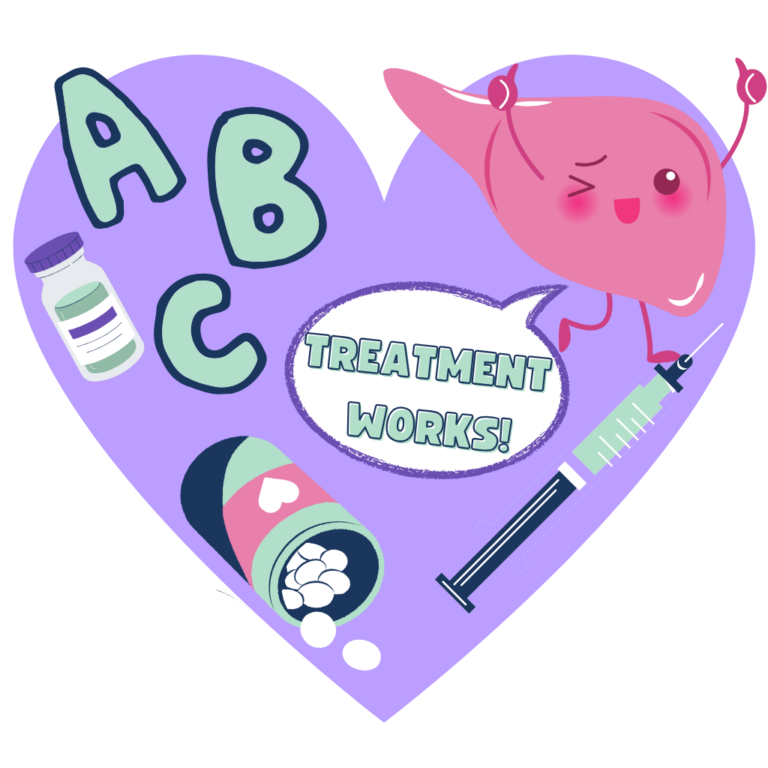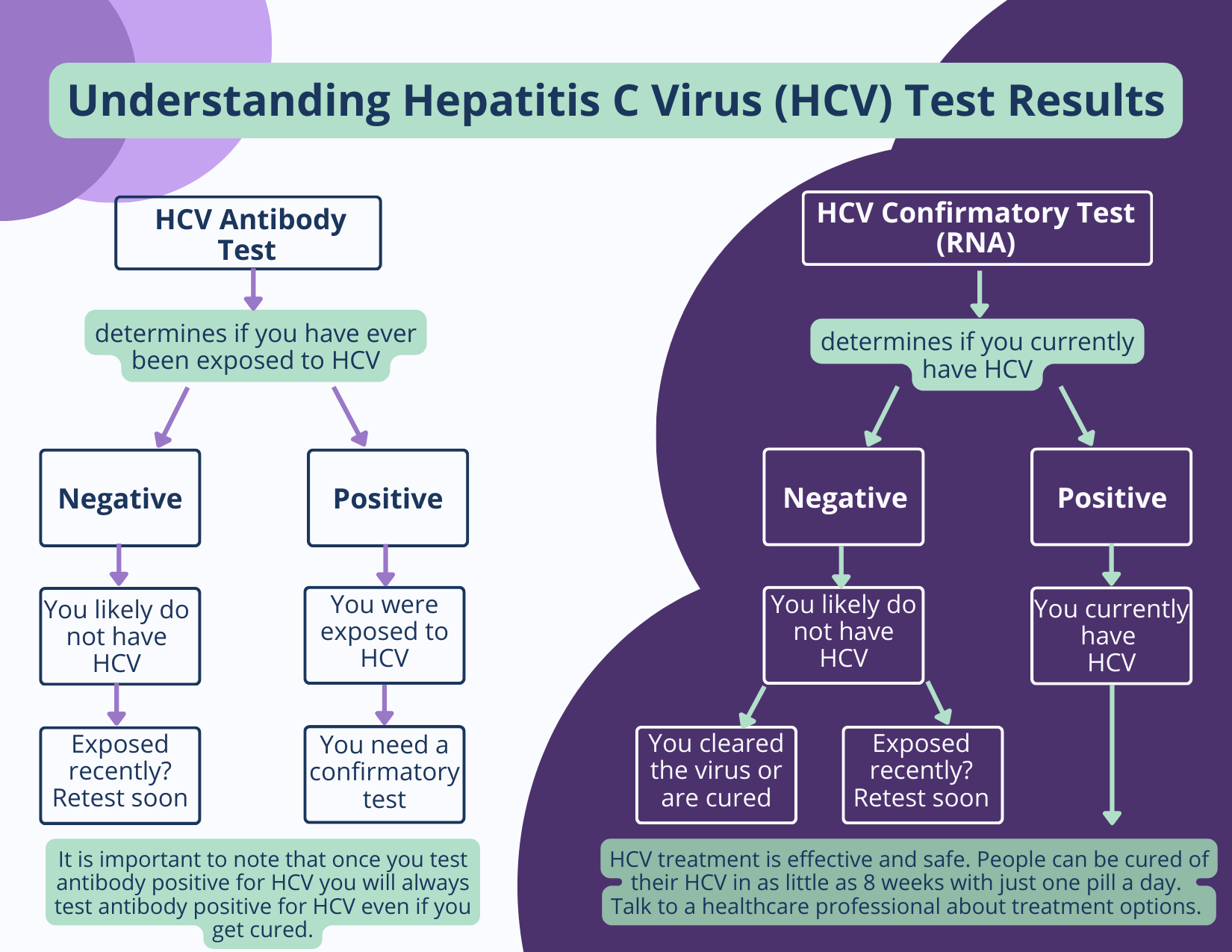Viral hepatitis is inflammation of the liver caused by a virus, most frequently hepatitis A virus (HAV), hepatitis B virus (HBV), or hepatitis C virus (HCV).
The liver acts as the body’s filter by removing toxins (harmful substances) from many of the items you eat, drink, inhale, inject, or put into your body. The liver also helps with digestion and blood clotting. You cannot live without your liver.

Hepatitis A is a contagious liver infection caused by the hepatitis A virus.
The hepatitis A virus is found in the stool and blood of a person who has hepatitis A. HAV is spread when someone ingests the virus, usually through close person-to-contact and/or consuming contaminated food or drink. This includes the following activities:
Symptoms of HAV often last less than two months although some people may feel sick for as long as 6 months.
Symptoms of HAV can vary but may include the following:
No, there are no specific treatments for HAV. Rest, hydration, and balanced diet can help alleviate symptoms.
Yes, but it rare.
The best way to prevent HAV is by getting vaccinated. You need to get all the shots in the vaccine series to be fully protected. Other things you can do to prevent getting HAV include:
Yes! There are several different vaccines for HAV in the United States. Talk to your healthcare provider to determine which vaccine is right for you.
A blood test can be used to determine if you have HAV.
If you have been recently exposed to HAV (within 2 weeks) talk your healthcare provider. They can give you a single dose hepatitis A vaccine within 2 weeks of exposure to prevent you from getting sick.
You can learn more about HAV from the CDC here.
Hepatitis B is a contagious liver infection caused by the hepatitis B virus.
HBV is transmitted when a person comes into contact with blood, semen, or another bodily fluid of a person with HBV. HBV can also be passed from a person living with HBV to their baby during pregnancy or birth.
HBV can range from a mild, short-term illness lasting a few weeks to a serious, long-term chronic infection.
Yes, untreated, chronic HBV can lead to serious health problems including severe liver damage, cirrhosis, liver cancer, all of which can be life-threatening.
Yes, HBV can be treated to slow disease progression, but there is currently no cure for HBV.
Many people with HBV won’t experience symptoms, but HBV can still cause serious health impacts. For those who do develop symptoms, typically they will begin 90 days after exposure. Many people who go on to develop chronic HBV do not show symptoms until much later in their life, often decades after their exposure. Symptoms can include the following
The best way to prevent HBV is to get vaccinated. You need to get all shots in the vaccination series to be fully protected. Other things you can do to prevent HBV include:
Yes! Talk to your healthcare provider about options to get vaccinated.
You can learn more about HBV from the CDC here.
Hepatitis C is a contagious liver infection caused by the hepatitis C virus.
Hepatitis C is spread through contact with the blood of a person who has HCV. HCV can also be passed from birthing person to baby during pregnancy or birth. If blood is present (even invisible amounts), HCV can also be spread during sex with someone that has HCV.
Hepatitis C can be classified as acute or chronic. When someone first gets HCV, they often either have a very mild illness with few or no symptoms, or a serious condition that requires hospitalization. This initial period is considered acute HCV. Less than half of people with acute HCV will clear the virus on their own.
Most people who get HCV will develop chronic HCV which is a lifelong and serious health condition. Chronic HCV is the leading cause of liver cancer in the U.S.
Yes. HCV can cause liver disease, liver failure, and liver cancer, all of which can be life-threatening.
Yes, and cured! Newer medications are just one pill a day for 8-12 weeks and have over a 90% cure rate.
Many people with HCV don’t look or feel sick, or they may have general symptoms like chronic tiredness or depression. People who do develop symptoms usually will notice them 2-12 weeks after exposure. Symptoms vary but can include:
The best way to prevent HCV is to avoid behaviors, such as sharing needles or other personal items that might come into contact with the blood of someone who has HCV, that can spread the virus. Ways to prevent HCV include:
No, currently there is not vaccine for HCV.

Perinatal hepatitis C is when a pregnant person living with hepatitis C virus (HCV) passes HCV to the baby during pregnancy or birth.
A baby may contract HCV by coming in contact with the blood of their birthing pregnant parent living with HCV. This can happen during pregnancy or during birth.
If a baby develops chronic HCV, the condition could last a lifetime if not treated with a course of antiviral medications.
Most babies born with HCV never develop symptoms. Even without symptoms, HCV can cause serious health problems. If the baby does show symptoms, it may include the following:
Yes, if the birthing person has HCV, the healthcare provider will check the baby 2-6 months after birth to test for the presence of the virus. If the test is positive, the healthcare provider will continue to monitor the baby for worsening of the condition and will treat symptoms as they develop. HCV treatment can be explored after the age of 3 years old.
Yes, if HCV is not monitored and treated, children born with HCV have a greater risk for liver cancer and cirrhosis (scarring of the liver) later in life.
There are currently no FDA approved HCV treatment regimens for pregnant persons, although several options are being currently evaluated in clinical trials. Because of this testing, prevention, and treatment prior to and during pregnancy is so important. Below are some prevention tips before, during, and after pregnancy.
Before Pregnancy
No, there is currently no vaccine that protects against HCV.
Perinatal hepatitis B is when a pregnant person living with hepatitis B virus (HBV) passes HBV to the baby during pregnancy or birth.
The most common cause of perinatal HBV is when a pregnant person living with HBV gives birth and the baby does not receive postexposure prophylaxis within twelve hours of birth. An infant can also get HBV through contact with blood or other bodily fluids from a person who has HBV.
Without timely postexposure prophylaxis, the risk of a baby acquiring HBV from a birthing parent as a result of exposure during pregnancy is 40%, out of the 40% infected, up to 90% will develop chronic HBV, which can last a lifetime.
Infants and children under the age of 5 years typically do not have any symptoms of HBV. If symptoms develop, they typically appear 90 days after exposure and can include:
Yes, to learn more about the management of infants born to a person with HBV click here.
Yes, 90% of infants born to a person living with HBV will acquire chronic HBV and 1/4 of those will eventually die from chronic liver disease.
The CDC recommends that all infants receive hepatitis B vaccine at birth regardless of the HBV status of the birthing parent. Infants born to people living with HBV require the hepatitis B vaccine and hepatitis B immune globulin (HBIG) within 12 hours of birth to protect them from getting HBV.
Yes
Project ECHO (Extension for Community Healthcare Outcomes) is a movement to demonopolize knowledge and amplify local capacity to provide best practice care for underserved people all over the world. The ECHO model™ is committed to addressing the needs of the most vulnerable populations by equipping communities with the right knowledge, at the right place, at the right time.